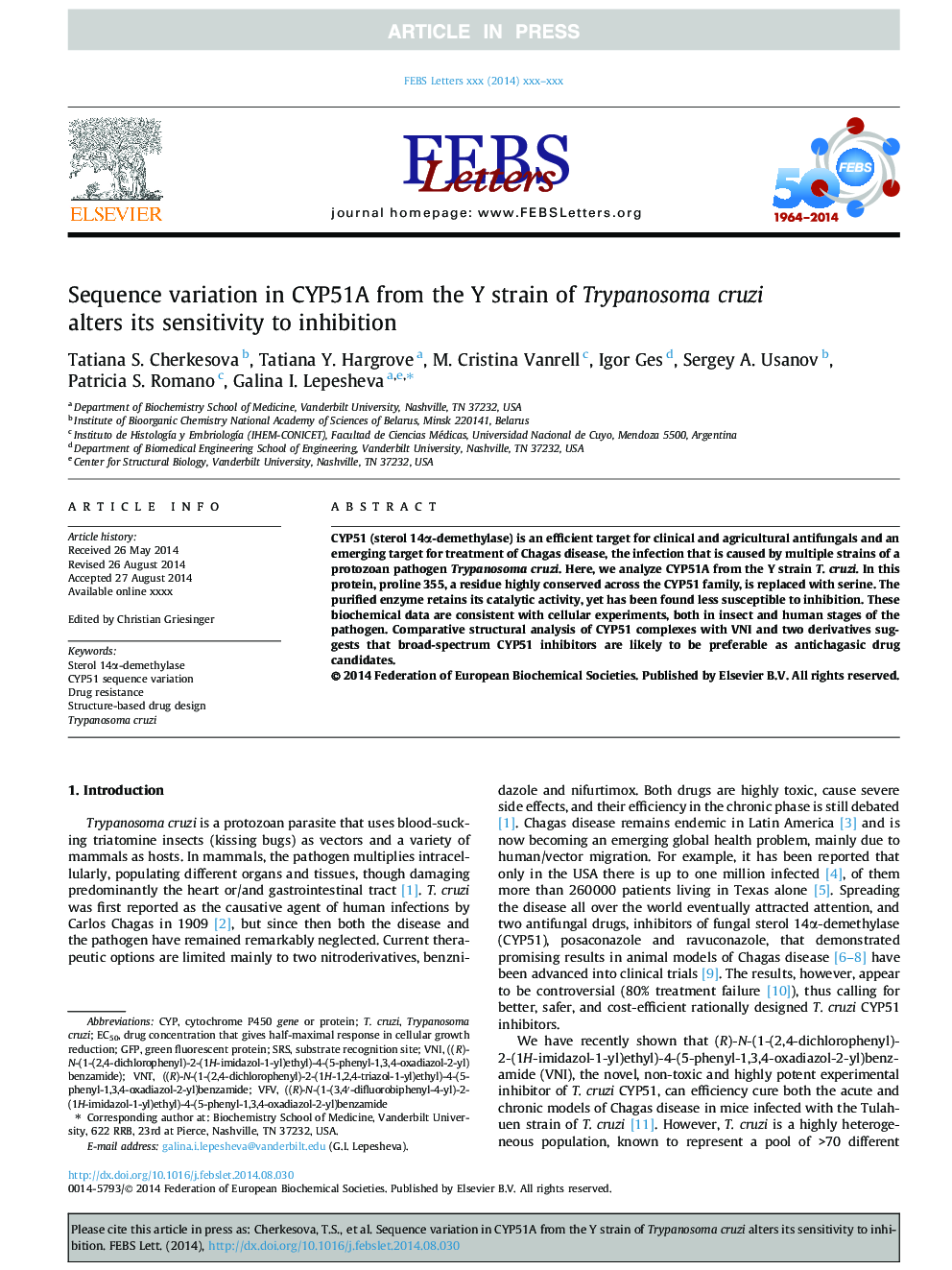| Article ID | Journal | Published Year | Pages | File Type |
|---|---|---|---|---|
| 10870585 | FEBS Letters | 2014 | 8 Pages |
Abstract
CYP51 (sterol 14α-demethylase) is an efficient target for clinical and agricultural antifungals and an emerging target for treatment of Chagas disease, the infection that is caused by multiple strains of a protozoan pathogen Trypanosoma cruzi. Here, we analyze CYP51A from the Y strain T. cruzi. In this protein, proline 355, a residue highly conserved across the CYP51 family, is replaced with serine. The purified enzyme retains its catalytic activity, yet has been found less susceptible to inhibition. These biochemical data are consistent with cellular experiments, both in insect and human stages of the pathogen. Comparative structural analysis of CYP51 complexes with VNI and two derivatives suggests that broad-spectrum CYP51 inhibitors are likely to be preferable as antichagasic drug candidates.
Keywords
Related Topics
Life Sciences
Agricultural and Biological Sciences
Plant Science
Authors
Tatiana S. Cherkesova, Tatiana Y. Hargrove, M. Cristina Vanrell, Igor Ges, Sergey A. Usanov, Patricia S. Romano, Galina I. Lepesheva,
